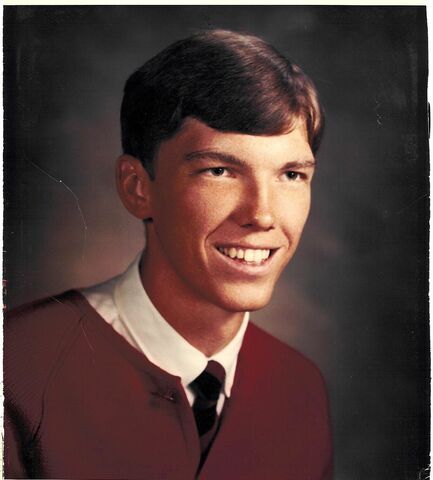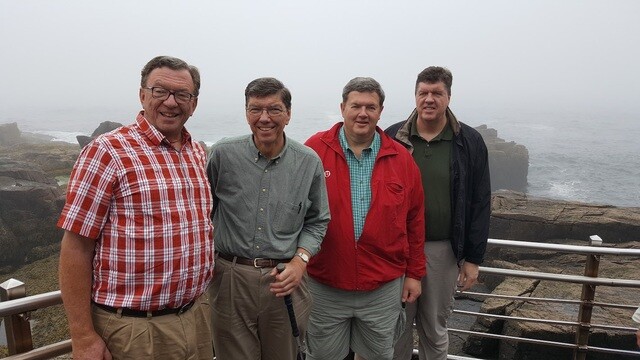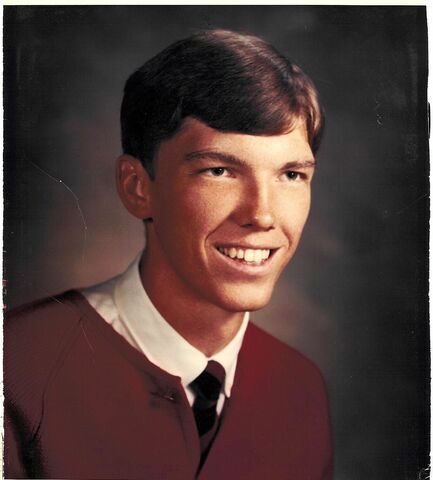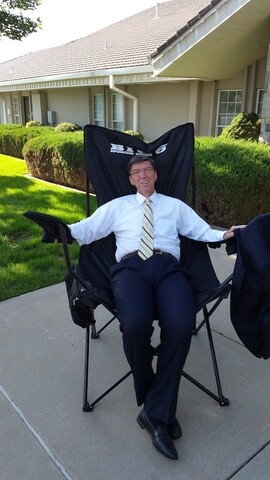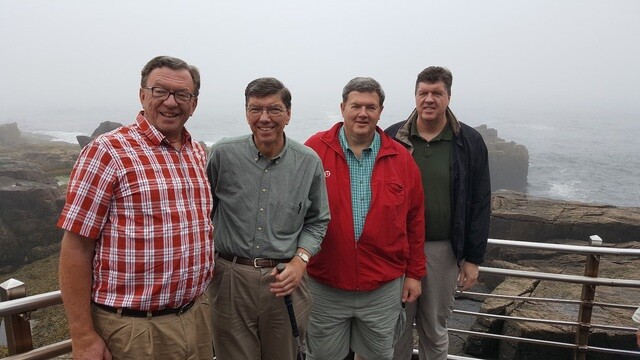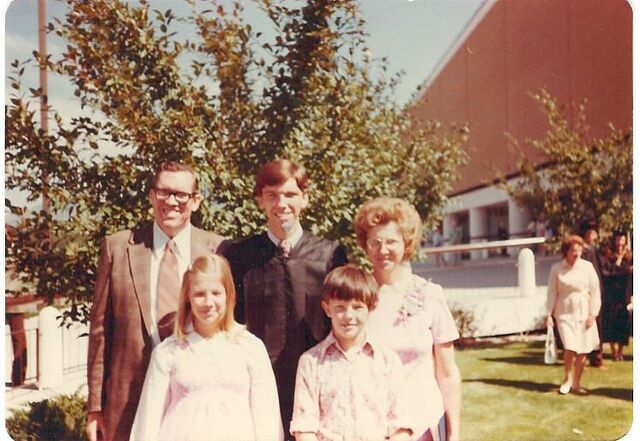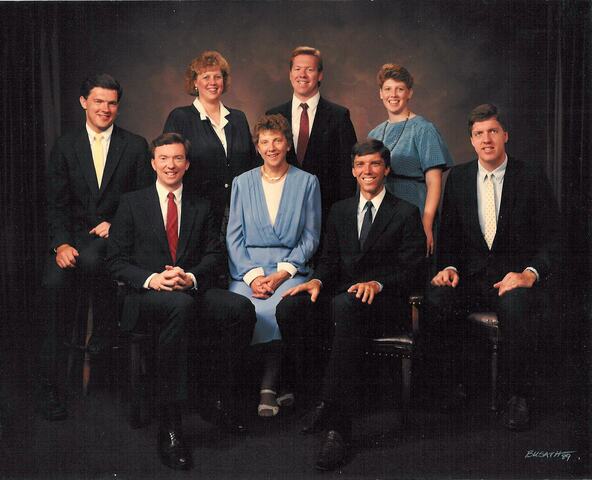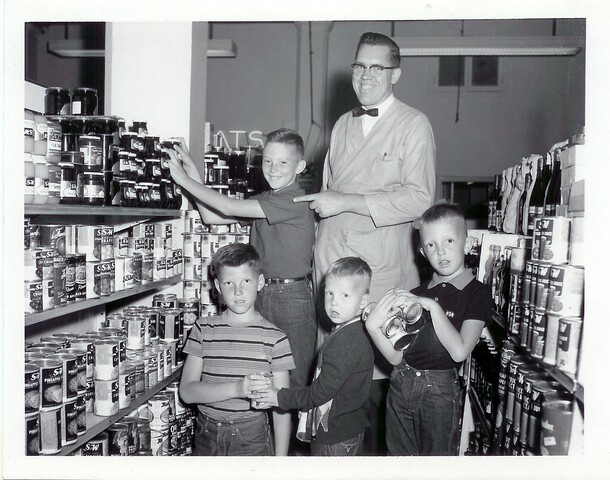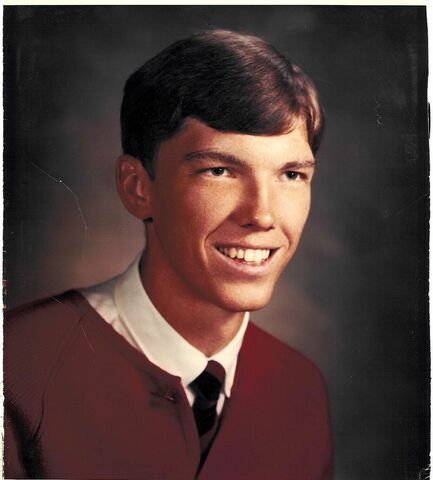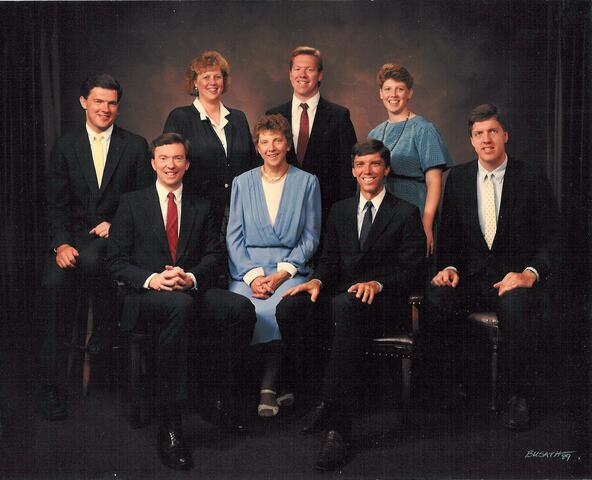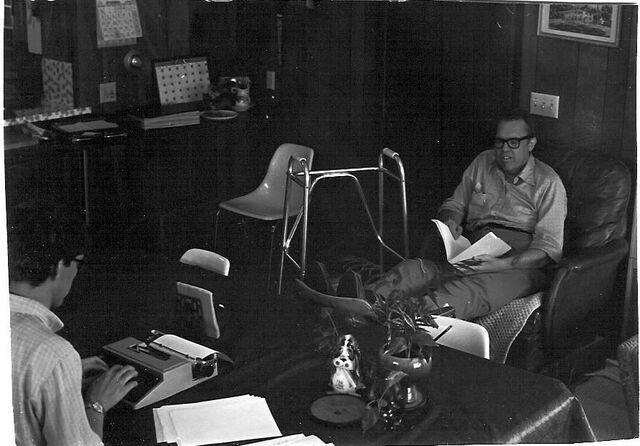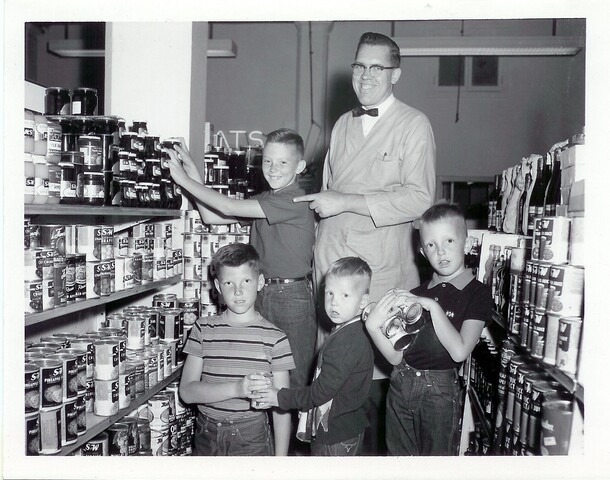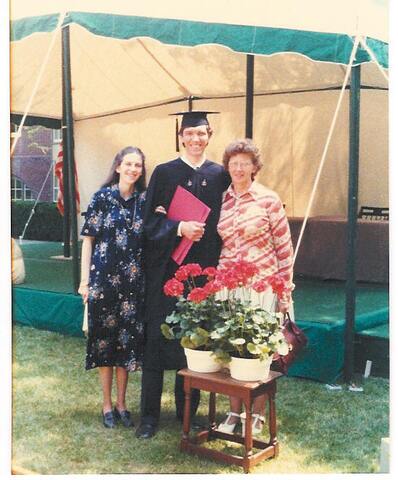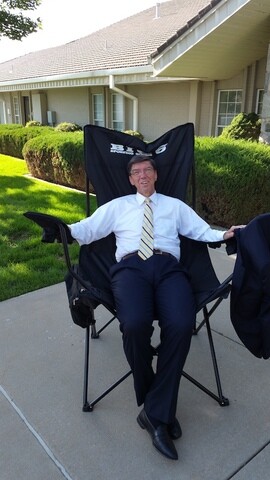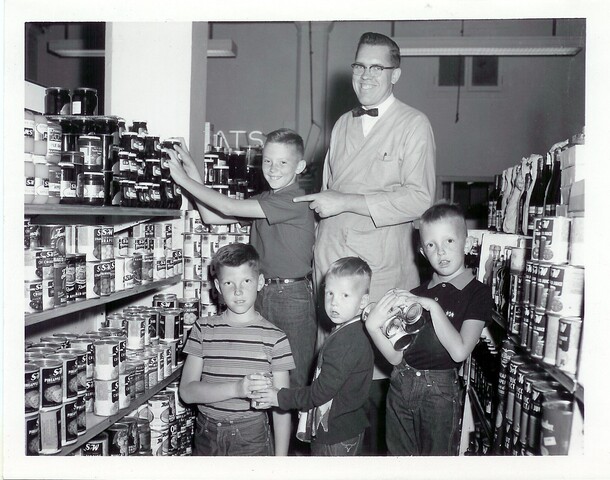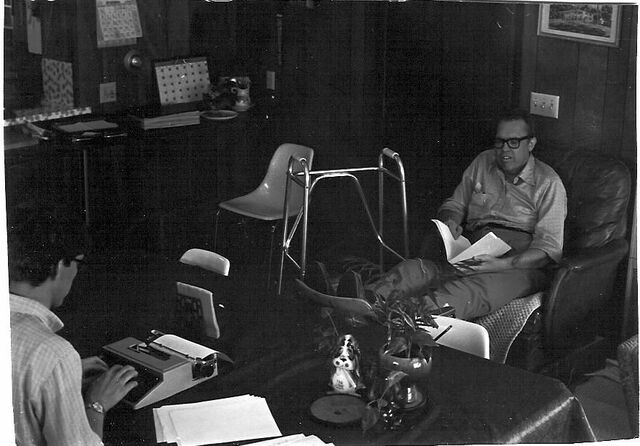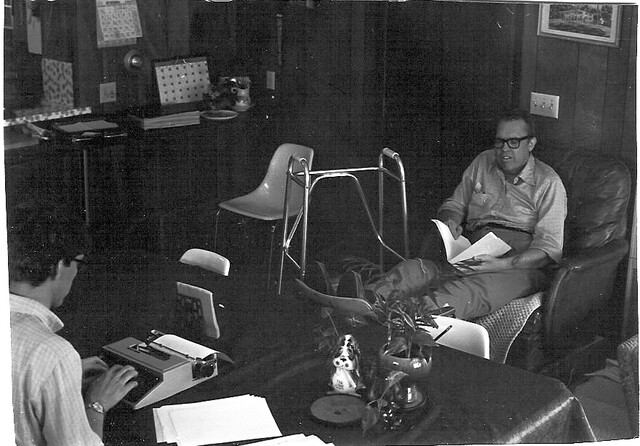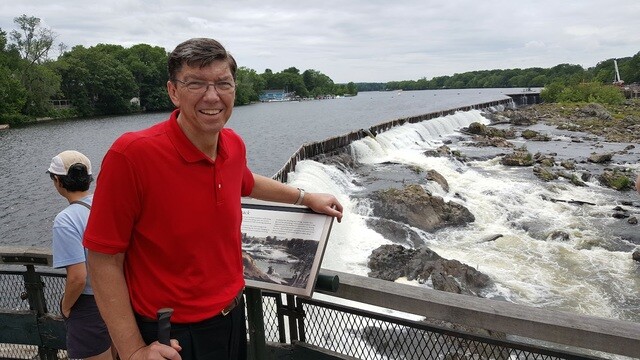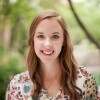When I was 8 years old, I wanted to be just like my uncle Clayton Christensen when I grew up. So, one afternoon, I walked up to the gold engraved 1982 set of encyclopedias on the bookshelf in our family room, selected volume “A,” and began to read.
I made it as far as “Australia.”
When my uncle Clayton was a boy, he read his family’s entire set of encyclopedias from “A” to “Z” simply because he wanted to. He had set his mind to it.
My uncle’s propensity of setting his mind to something is, I believe, one of the key characteristics that ultimately made him world renowned—despite having “tried very hard to stay out of life’s spotlight”—before he died on January 23, 2020, due to cancer and other health complications.
He revolutionized the business field with books like The Innovator’s Dilemma and The Innovator’s Solution because he never looked for the easy answer—he looked for the right one. He molded minds through his classes at the Harvard Business School. And he wasn’t afraid of tackling the world’s biggest issues—including education, poverty, and health care—in works such as Disrupting Class, The Prosperity Paradox, and The Innovator’s Prescription.
I’m proud of my uncle and his accomplishments. His fearlessness in looking at the world through a different lens will impact me for the rest of my life.
But as I have lain awake at night since he passed away, visiting his Facebook page, reading people’s tributes about his character, and falling asleep with How Will You Measure Your Life? in my hands, there are many things about my uncle Clayton that have left an indelible impression in my mind and in my heart of what it means to truly live—of what it means to truly believe.
Uncle Clayton
When my uncle Clayton entered a room, you could feel it—there was something almost magnetic about his presence. Everyone in his vicinity wanted to know what his thoughts were on a subject, eager for advice about their next step in life.
Certainly, this was in part due to his brilliant mind, but I am convinced that people—be it friends, family, acquaintances, or strangers—felt drawn to my uncle Clayton because of his great spirit. He loved them, and that was easily apparent.
I understood this subconsciously from a very young age. When my uncle Clayton visited Utah, my family would gather together at the house where my dad, aunts, and uncles had grown up in Rose Park.
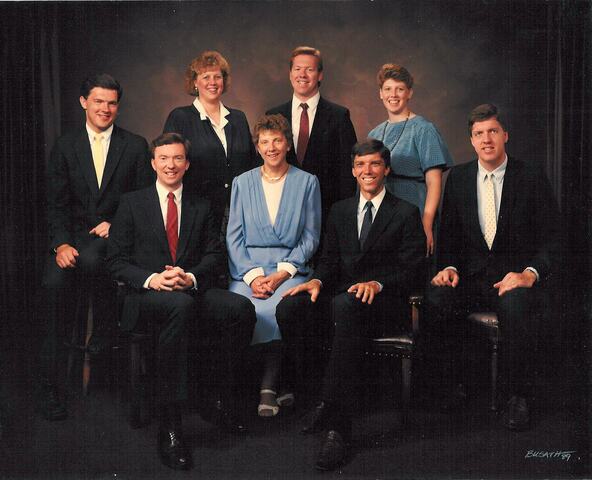
The Christensen family. Back row (from left to right): Carlton, Maribeth, Bradley, Nancy. Front row (from left to right): Elliott, Verda Mae, Clayton, Spencer. Credit: Courtesy of Carlton Christensen
It was such a remarkable sight seeing my uncles in a kitchen that suddenly felt small when their giant frames were all next to each other, the tallest sibling standing at seven foot one. There was a kind of comfort watching them talk with one another, their low voices rumbling beneath the shrieks of children running through the living room while cousins and aunts played card games at the dining room table. As siblings, they all fit there, somehow, in that house where they grew up. It was home.
One Sunday afternoon when my uncle was in town, the house was quieter than usual. I sat on a kitchen stool in a purple flower skirt and a white shirt feeling a little out of place as the adults around me talked, until my uncle Clayton asked how I was doing. The conversation perhaps was inconsequential, as I don’t remember what we said, only that I felt noticed. And as a 10-year-old at that time, feeling noticed was exactly what I needed. Somehow, I think he knew that.
Looking back, I realize now how remarkable it was that while growing up I didn’t understand how important my uncle was by worldly standards. I didn’t know that he met with influential leaders of government to discuss his ideas. I didn’t fully comprehend what it meant that he frequently flew across the country or around the world discussing business theories like the “jobs to be done,” although I did think his job seemed pretty cool.
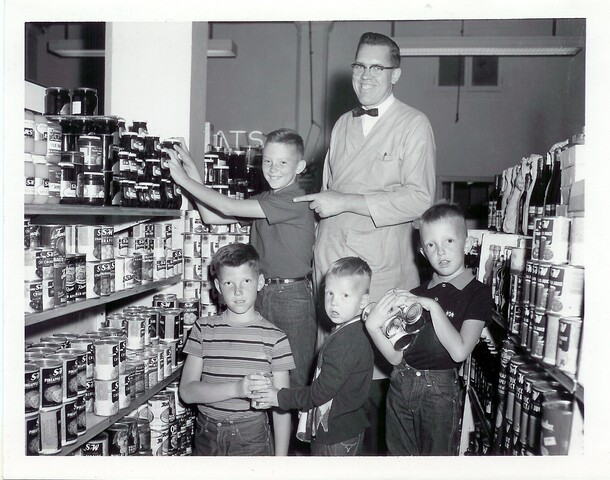
He was just my uncle. I heard stories of how as a teenager he floated down the Jordan River to the Great Salt Lake just for fun in a canoe with my dad. Their pants got so salty from the trip that they could partially stand them up on the shore of Antelope Island before they went to sleep at night. As a boy, he and his siblings would regularly help their dad with his work as division merchandise manager at ZCMI, the first department store in the United States. Later, when my grandpa was diagnosed with Hodgkin's disease, my uncle Clayton took time off from his studies at Oxford to spend long afternoons typing his father’s life history while there was still time.

My uncle Clayton types as his father, Robert Christensen, dictates his personal history to him.
As I got older, my relationship with my uncle changed and I came to understand and appreciate his ideas more. On occasion, he advised me on what to do when I had no idea what career path to take. We sat together on a couch in his New England-style home in Belmont, Massachusetts, a rug beneath our feet, as we explored his ideas. I loved the way he used his hands as he spoke. They were such big hands. Gentle hands. Tilting his head, he’d get a look in his eye as though he could see straight to the root of a problem to help you find the answer you needed.
Although he may have written books and addressed large crowds, my uncle Clayton spoke just like anybody else. Not once did he ever talk down to you.
When I think of my uncle, I also think of his sense of humor. Once while on vacation in Boston, I stayed the night with my sister at our aunt and uncle’s house. My aunt Christine prepared us breakfast of broiled grapefruit with brown sugar and locally made yogurt. Having never been a morning person, I woke up late and moseyed into their kitchen, not realizing that everyone had waited for me to be ready so we could have breakfast together.
I sheepishly apologized, feeling awkward as I spooned the yogurt into my bowl. My uncle, who had been up for hours and was wearing his typical polo shirt and khaki pants, smiled at me.
“God made Saturdays for sleeping in,” he joked.
I looked up in surprise, wondering if I had heard him right. He grinned, and we all laughed. It was a simple moment, but I was grateful to him for going out of his way to make me feel comfortable. But that’s just what he did—no matter who you were or where you came from, my uncle made you feel at home.
Why He Believed
Several years ago, I read a piece by my uncle called “Why I Belong, and Why I Believe” for the first time. My family had long since gone to bed while I stayed up in my bedroom, mesmerized by his words about how he came to know about the truthfulness of the Book of Mormon.
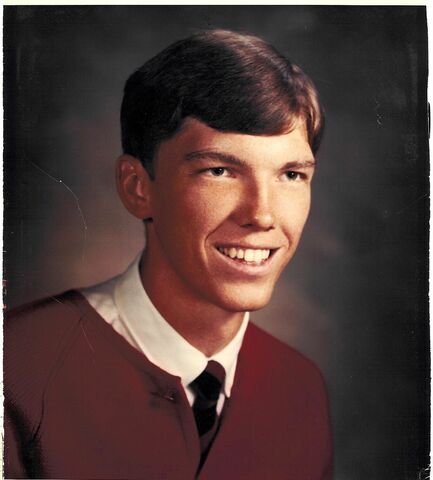
While studying at Oxford at age 24, my uncle Clayton had to know for himself whether the book was a “fabrication” or not. Though he had read it cover to cover seven times previously, this time he was looking for an answer about its truthfulness. So, every night from 11 p.m. to midnight, he devoted time to studying the Book of Mormon next to the fireplace in his chilly room at Queen’s College.
As he finished each page, my uncle Clayton would pray aloud to know if the book was true or if he should search for “something else.” And if it was true, he promised God that he would devote his life to “following its teachings, and to helping others do the same.”
These are his words about the experience:
“After I had done this for several weeks, one evening in October 1975, as I sat in the chair and opened the book following my prayer, I felt a marvelous spirit come into the room and envelop my body. I had never before felt such an intense feeling of peace and love. I started to cry and did not want to stop. I knew then, from a source of understanding more powerful than anything I had ever felt in my life, that the book I was holding in my hands was true. It was hard to see through the tears. But as I opened it and began again to read, I saw in the words of the book a clarity and magnitude of God’s plan for us that I had never conceived before. The Spirit stayed with me for that entire hour. And each night thereafter, as I prayed and then sat in that chair with the Book of Mormon, that same spirit returned. It changed my heart and my life forever.
“It was as if I had been looking out as far as I could see toward the horizon and had been quite satisfied that I could see everything that there was to see. When I undertook to read the Book of Mormon in that manner, however, I discovered that so much more beauty and truth about who we are and what God has in store for us, lies beyond that old horizon. I did not know what I did not know.”
I remember reading my uncle’s words in my room so clearly. I could feel his testimony filling my heart despite the fact that we lived so far apart. And I knew then that if a Harvard professor could proclaim his belief to the world like that then so could I.
My uncle often shared his beliefs. It wasn’t just through words and interviews and TED Talks, though he did each eloquently. Perhaps more importantly, he demonstrated what he believed by selflessly serving others. Whether it was helping new graduate students and families move into or out of the Boston area or removing a box of rotting grapefruit from a neighbor’s refrigerator, he lived and breathed a life of service. He was addicted to it.
In his piece “Why I Belong, Why I Believe,” my uncle shared how he loved being a part of The Church of Jesus Christ of Latter-day Saints because it is “the core of Christian living as Christ taught it.” He loved that members of the Church did their best to serve, and they did it regularly.
When The Power of Everyday Missionaries came out, my family would often spend our evenings talking about how we could better share the gospel and overcome our inhibitions that kept us from doing so, as my uncle outlined in his book. How could we better help people understand that it wasn’t that they needed the Church, but that the Church needed them? How could we create more natural conversations about the gospel?
His advice on the subject has changed our approach to sharing the gospel. For me, it has often been something simple, like when I left work one night and the security guard in my office building asked me what I was doing that weekend. In a split-second decision, I shared that I was going to the temple. Afterwards, I realized that if it hadn’t been for The Power of Everyday Missionaries, the thought to tell him that may never have occurred to me.
But those thoughts occurred regularly to my uncle Clayton. Whether he was serving as bishop of a single’s ward or as an Area Seventy in New England, he studied what made a ward successful and learned everything he could from it.
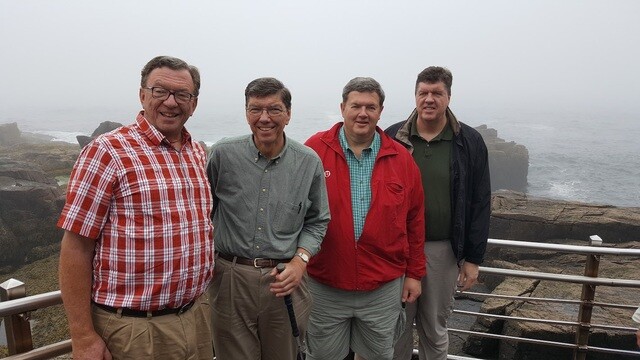
My uncle Clayton and his brothers on a trip to New England. From left to right: Elliott, Clayton, Carlton, Spencer.
“ . . . I think about missionary work every day,” he wrote. “But I also think every day about how to be a better teacher at Harvard; how to be a better husband and father; how to build better companies; how to truly build the kingdom of God, just as Daniel foresaw. For whatever reason, I think and study about all of these (and many more) problems every day. In retrospect, I simply have been trying to learn fundamental truths and falsehoods that affect us.”
A New Horizon
My uncle’s absence is felt keenly by all who knew him, and I can never hope to adequately express just what he means to me, my family, and his loved ones. I feel his influence regularly, and the smallest of things—even that set of encyclopedias on my parent’s bookshelf—remind me of his patient example of hard work, love, service, and devotion to God.
Because of him, I have learned to be more forgiving. I have learned to be more gracious. I have learned to try a little harder. And I have learned to trust more in my Heavenly Father.
I do not know why my uncle Clayton had to leave us so early or why he suffered so much physical pain in the latter years of his life. All I know is that the pain I feel at his being gone is not from sorrow at thinking he is lost to us for forever, because I know he is not. We will see him one day because of the Atonement of Jesus Christ. Death, and the grief that comes with it, is simply a reminder in the meantime that we loved and were loved in return.
I take comfort that, as my uncle once said, “So much more beauty and truth about who we are and what God has in store for us lies beyond that old horizon.”
I have a feeling—no, I am certain—that beyond that old horizon, my uncle is hard at work testifying of the gospel of Jesus Christ. And while I couldn’t possibly measure the depth or breadth of his life, the best way I can express my gratitude to him for having lived his own so well is by sharing with others, as he called it, “this magnificent gospel, with pride and love.”
Because in the end, as my uncle explained in How Will You Measure Your Life?, it is not the “number of awards, or dollars accumulated in a bank” that matters. Rather, it is the people whose lives we have lifted so we can move along our mortal journey with a little more comfort and a little more ease than we did before.
“When I have my interview with God, our conversation will focus on the individuals whose self-esteem I was able to strengthen, whose faith I was able to reinforce, and whose discomfort I was able to assuage—a doer of good, regardless of what assignment I had," he wrote. "These are the metrics that matter in measuring my life."
Lead image: Clayton Christensen at an overlook of the Great Stone Dam on the Merrimack River in Lawrence, Massachusetts, on June 28, 2016. Courtesy of Carlton Christensen
